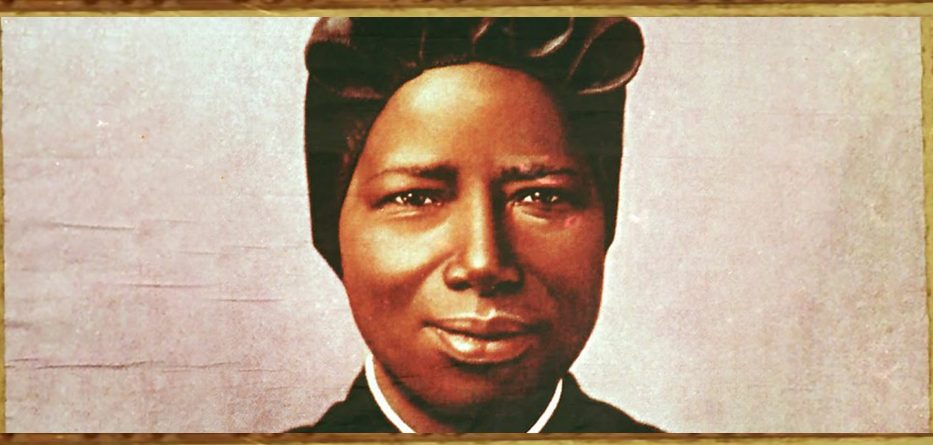On the weekend of 8 and 9 February, the Diocese of Parramatta will place a special focus on the Feast of St Josephine Bakhita and her role as patron saint of victims of modern slavery and human trafficking.
In 2015, Pope Francis designated February 8, St Josephine’s feast day, as the World Day of Prayer, Reflection and Action Against Human Trafficking. This year will be the sixth iteration.
“St Josephine’s feast day is an opportunity to raise awareness about human trafficking,” Bishop Greg O’Kelly SJ, the then-chairman of the Bishops Commission for Justice, Ecology and Development, said in 2018.
“Pope Francis has called us to make a difference. our steps may be small, but together we can achieve a great deal, especially when we work with others to stop human trafficking.”
St Josephine Bakhita was born in the west Sudanese region of Darfur in 1869. As a young girl, she was kidnapped and sold into slavery. In 1882, she was bought by an Italian Consul, Callisto Legnani, and she moved to Italy.
When she was left in the care of the Canossian Daughters of Charity in Venice, St Josephine came to know about God who had suffered as she had.
Pope Benedict XVI, in his 2007 Encyclical Letter Spe Salvi, explained, “she [St Josephine] came to know that this Lord even knew her, that he had created her—that he actually loved her. She too was loved, and by none other than the supreme ‘Paron’, before whom all other masters are themselves no more than lowly servants. She was known and loved and she was awaited. What is more, this master had himself accepted the destiny of being flogged and now he was waiting for her ‘at the Father’s right hand’. Now she had ‘hope’ —no longer simply the modest hope of finding masters who would be less cruel, but the great hope: ‘I am definitively loved and whatever happens to me—I am awaited by this Love. And so my life is good.’ Through the knowledge of this hope she was ‘redeemed’, no longer a slave, but a free child of God.” (Spe Salvi, §3).
On 9 January 1890, St Josephine became a Christian, and professed her vows as a Canossian Sister on 8 December 1896. She died on 8 February 1947 and was canonised by St Pope John Paul II in 2000.
Research developed in 2017 by the United Nation’s International Labour Organization (ILO) and the Walk Free Foundation, in partnership with the United Nation’s International Organization for Migration (IOM) found that over 40 million people around the world were victims of modern slavery in 2016.
The research showed that women and girls are disproportionately affected by modern slavery, accounting for almost 29 million, or 71 per cent of the overall total.
The ILO also released a report which gives an estimate of child labour, which confirmed that about 152 million children, aged between 5 and 17, were subject to child labour.
In November 2018, the Australian government passed the Modern Slavery Act, which came into effect on 1 January 2019, which “establishes a Modern Slavery Reporting Requirement to require certain large businesses and other entities in Australia to make annual public reports (Modern Slavery Statements) on their actions to address modern slavery risks in their operations and supply chains.”
Over this weekend, we seek the intercession of St Josephine Bakhita and pray for those affected by the crimes of modern slavery and human trafficking. We give thanks for those who work tirelessly to eradicate these practices in our community and ask for the personal strength and courage to speak out and confront this issue.
“Be good, love the Lord, pray for those who do not know Him. What a great grace it is to know God!” – St Josephine Bakhita.








